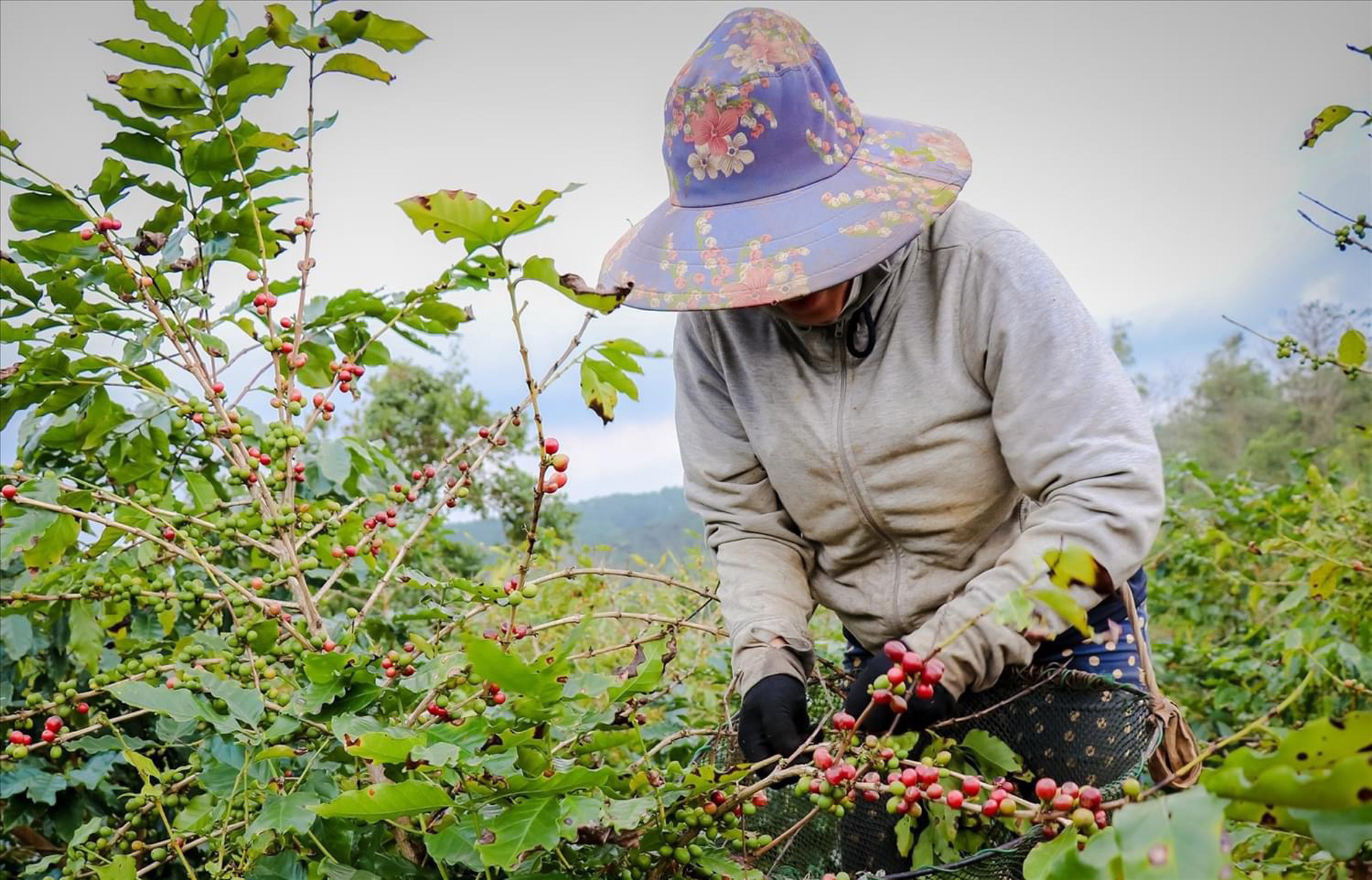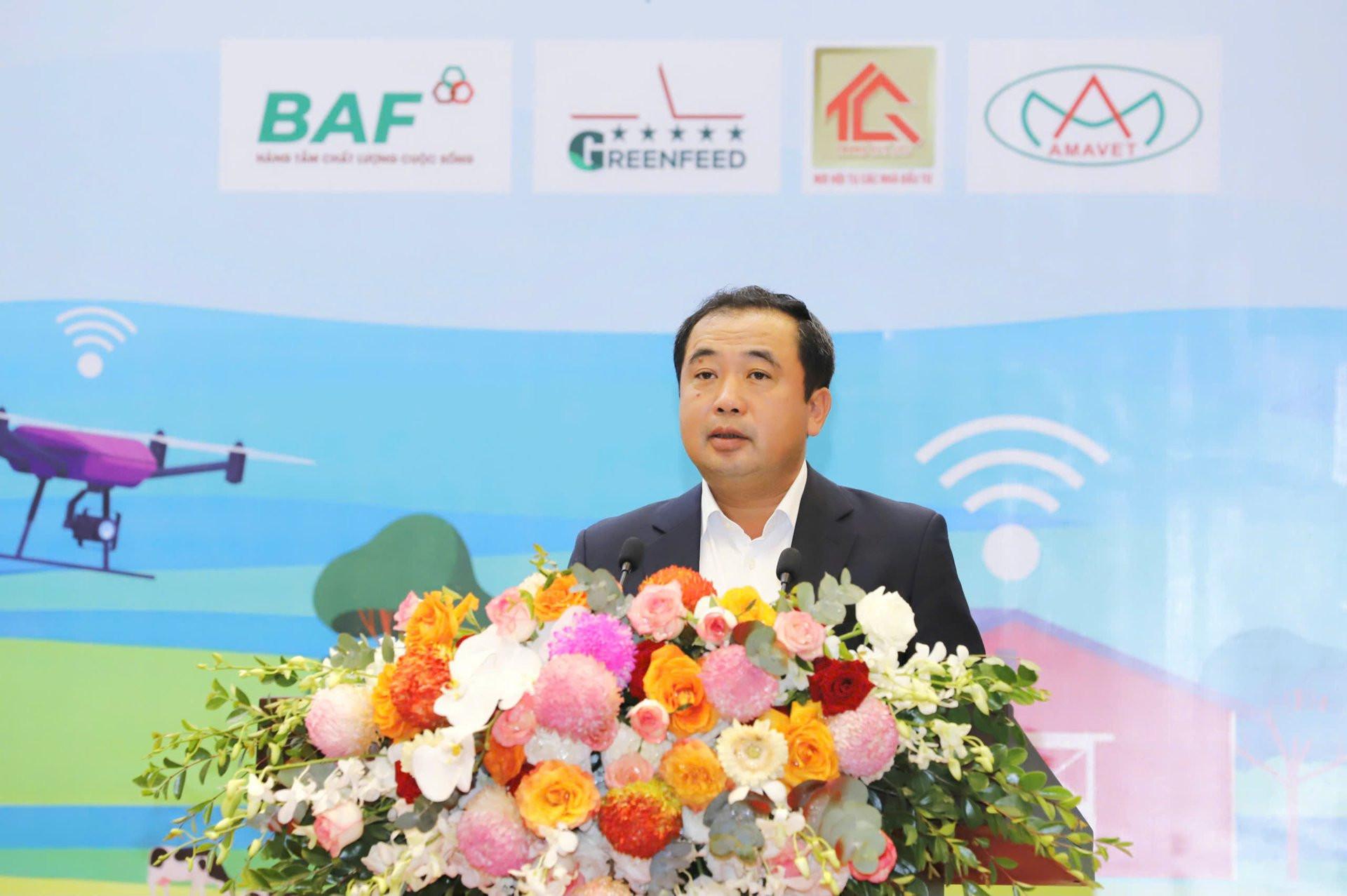Need for commodity exchanges and deep processing investments
Speaking at the 2025 Forum “Farmers Entering a New Era”, co-hosted by the Chairman of the Vietnam Farmers’ Union and the Minister of Agriculture and Environment on November 2, Thong noted that his company ranks among the top five coffee exporters, generating an average annual revenue of USD 350 million.
He pointed out that Vietnam exports a wide range of agricultural products globally, with several items ranking first, second, or third in the world. However, due to limited control over pricing and sales channels, the actual profits remain modest.
“Vietnam is sitting on a gold mine of agricultural resources,” he said, “but too many bottlenecks prevent efficient exploitation.”

To address this, he called for more investment in deep-processing facilities. Provinces should encourage businesses to build agro-processing factories in major agricultural regions. Deep processing not only creates jobs but also significantly enhances the added value of Vietnamese exports.
Thong also proposed establishing commodity exchanges to stabilize trade and attract capital. Such platforms would bring together buyers, sellers, and producers, helping to define the true market value of Vietnamese agricultural products and laying the groundwork for deeper processing.
He also stressed the importance of quality control at the farm level, revising and tightening food safety standards to better serve both domestic and export markets.
In terms of policy, he suggested revisiting VAT refund processes on exported goods to reduce turnaround times, enabling businesses to reinvest and expand production cycles.
Nguyen Thi Thanh Thuc, CEO of AutoAgri Software Technology JSC, highlighted that machinery support for agricultural processing remains fragmented and insufficient, making it difficult to adopt advanced technologies.
Regarding coffee, she noted that Vietnam has seen record export turnover due to a 300% price increase. While Vietnam leads the world in Robusta exports, its specialty coffee segment remains underdeveloped and lacks a recognizable brand identity.
She proposed forming a national Specialty Coffee Association to help Vietnam fully capitalize on the value of its premium coffee products.
‘Speak up if there are barriers’

After hearing concerns from farmers, businesses, and scientists about land access, administrative procedures, credit, science and technology, digital transformation, the environment, and market linkages, Minister of Agriculture and Environment Tran Duc Thang acknowledged the practical feedback and outlined breakthrough strategies for the sector.
He emphasized that the agriculture and environment sector is facing serious challenges, including climate change, resource degradation, natural disasters, and pollution. Furthermore, the sector’s transition toward growth is slow, labor productivity remains low, and land and environmental management are still plagued by inefficiencies.
Many farmers continue to face hardships, and the rural-urban wealth gap remains a critical issue.
The Minister also pointed to increasing global competition, with stricter requirements for green standards, carbon emissions, and traceability. While digital technology and AI offer tremendous potential for growth, they also demand a major shift in mindset and agricultural governance.
Given these realities, the Ministry has identified four strategic breakthroughs:
First, aggressively reform and improve legal frameworks to remove bottlenecks, unleash development resources, decentralize authority, and empower local governments with full responsibility.
“If people or businesses encounter any difficulties, raise your voice,” the Minister urged. “The Ministry of Agriculture and Environment commits to resolving all issues thoroughly.”
Second, drive innovation through science, technology, and digital transformation. This includes piloting exceptional policies for new agricultural models and completing a unified sector-wide database.
Third, invest in modern and synchronized agricultural and rural infrastructure to support production and logistics.
Fourth, focus on developing high-quality human resources, including scientists, experts, entrepreneurs, and professional farmers, to meet the sector’s growing demands.
The Minister called on ministries, agencies, and relevant departments under the Ministry of Agriculture and Environment, as well as the Vietnam Farmers’ Union, to review all feedback from the forum. This input should be used to promptly resolve challenges and refine future policies.
Tam An

